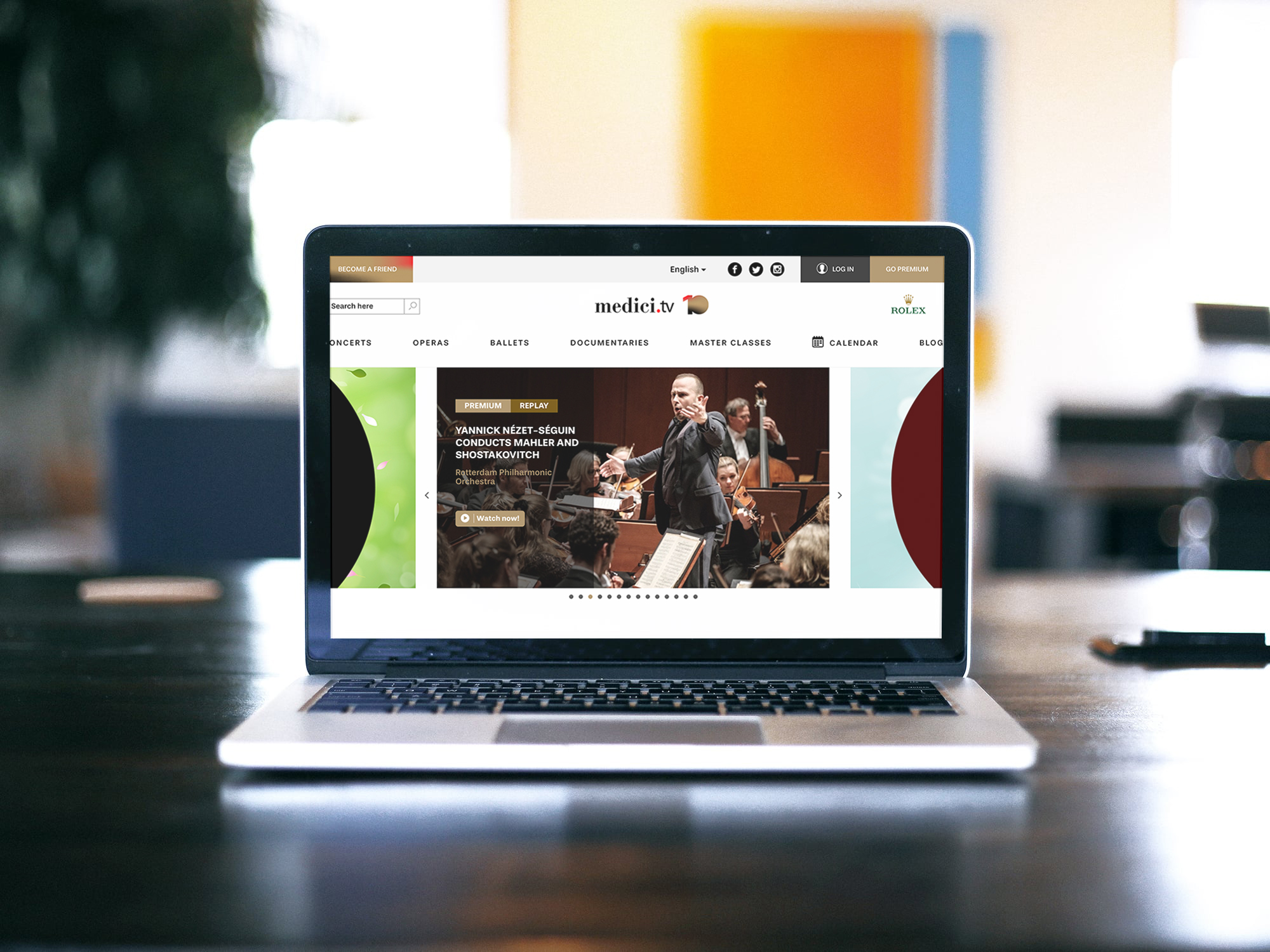As part of Against the Grain’s Digital Opera Research and Intelligence Study (DORIS), we sat down with livestreaming experts to chat about the intersection between opera and technology. In the Q&A below, you’ll meet Hervé Boissière, founder and CEO of Medici.tv.
Medici.tv is the world’s leading online classical music channel. It broadcasts over 150 live events each year from the world’s most prestigious stages. Based in Paris, Hervé Boissière worked in various executive positions in the recording industry before founding Medici.tv in 2008.
How did Medici.tv get started? What was the need?
As a music producer, my goal and responsibility has always been to efficiently connect the best artists with the biggest possible audience worldwide. When I saw YouTube in 2005, I immediately understood that a new phase of our industry was starting. In June 1999, Napster completely changed (or even destroyed) the CD business and it was clear that we needed a new format for promoting artists. The obvious solution was to create a new place where people could “attend” some fantastic concerts from their home. We had the intuition to set up a freemium model combining livestreaming for free and a collection of programs available on SVOD (Subscription Video On Demand), behind the paywall. The idea was to combine YouTube and Netflix.
How has the response to Medici.tv changed since the beginning?
The support and the response of the artists, without whom nothing is possible, has not changed since we started 10 years ago. It is amazing to see how they love to join our productions and how they appreciate the international reach we deliver to them.
The main change has been on the audience side. Medici.tv was the very first platform dedicated to classical music. It started in 2007 with full coverage of the Verbier Festival with 27 concerts webcasted live all around the world. Since then, newcomers have arrived including the Berlin Philharmonic’s Digital Concert Hall, the Met Opera on Demand and public broadcasters like Arte, ORF and BBC switching to streaming. But we are still the only platform open to everyone and without any structural connection or influence from the partners.
Another challenge for us has been moving from a promo platform at the beginning, beloved by the users by definition because it’s free, to various forms of monetization which obviously secure our future financially and our independence. That is the reason why we created a diversified business model, combining B2C (about 20k individual subscribers YTD), B2B (strong distribution in the education market with over 200 universities and music schools in our client portfolio), and sponsorship (corporate partners like Rolex or private foundations) which help us cover part of the production costs of our free line-up of livestreaming.
But all together, we are quite proud to have maintained our objectives and values for the past 10 years. We are still the leading platform for the community and we have to reinvent ourselves each day to keep that number one market position.
What do we know about the online audience for performing arts content?
We are reaching a relatively similar audience compared to live performances, but the main differences are that they are younger (average on Medici.tv is 51 years) and coming from a more diversified social background. We of course see a strong proportion of high-earners but we are also very attractive to all the people who don’t have the money to travel or to buy tickets to the Salzburg Festival. There is clearly a democratization element to our work and we are very much inspired by that because we all know that it is urgent to welcome new and younger audiences to our musical genre.
Why should performing arts companies livestream their performances?
It is essential to develop the public of tomorrow. Your future ticket-buyers are already online but not yet in your concert halls and operas. That is why your responsibility is to connect with them today through livestreaming, social media and other innovative content formats. If you are not proactive online today, you will lose your existing audience as they get older, and you will not create your next generation of audience.
And the competition is very strong online. Digital has changed our entire life and classical music will not escape the revolution. It is of course not a danger but a fantastic opportunity. Nobody can ignore it.
